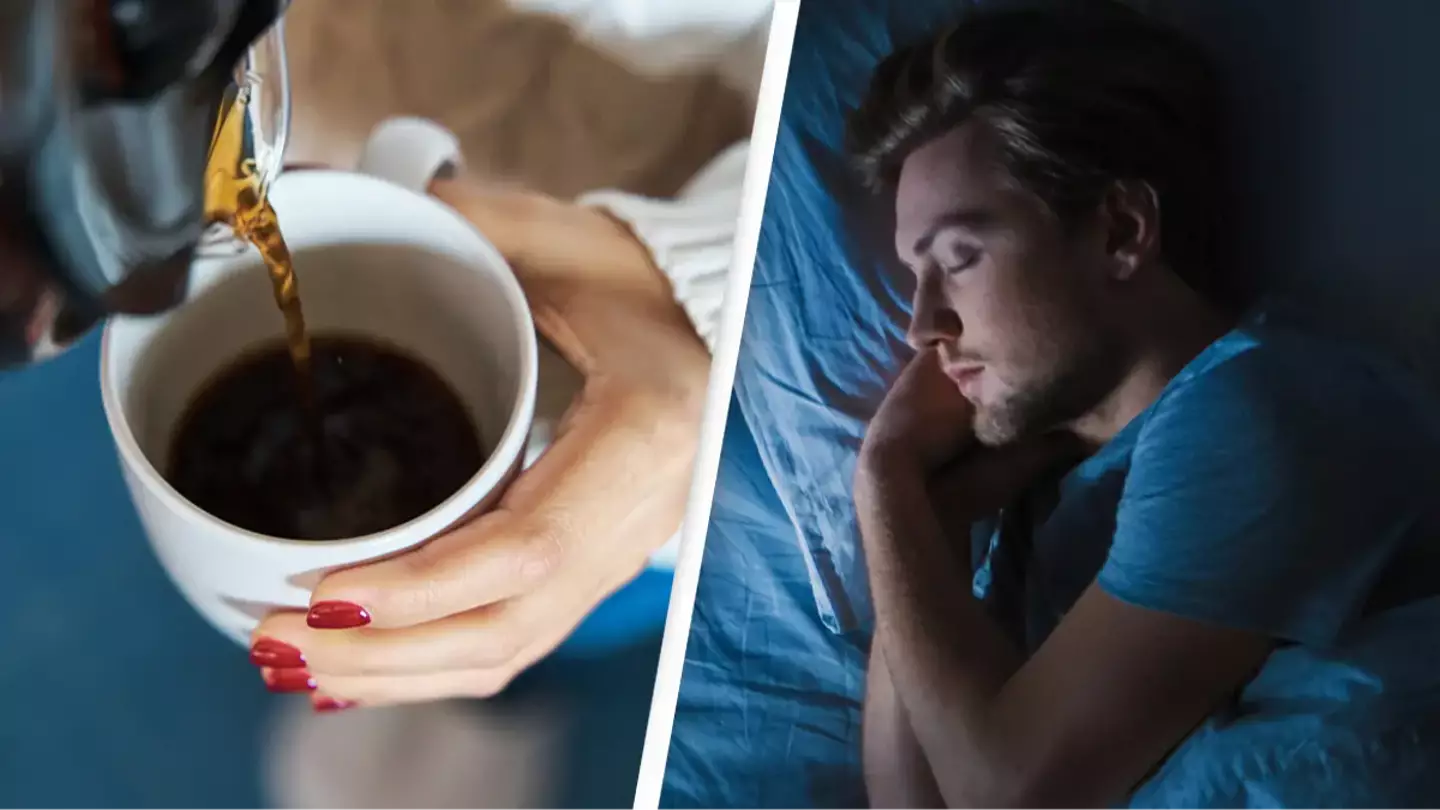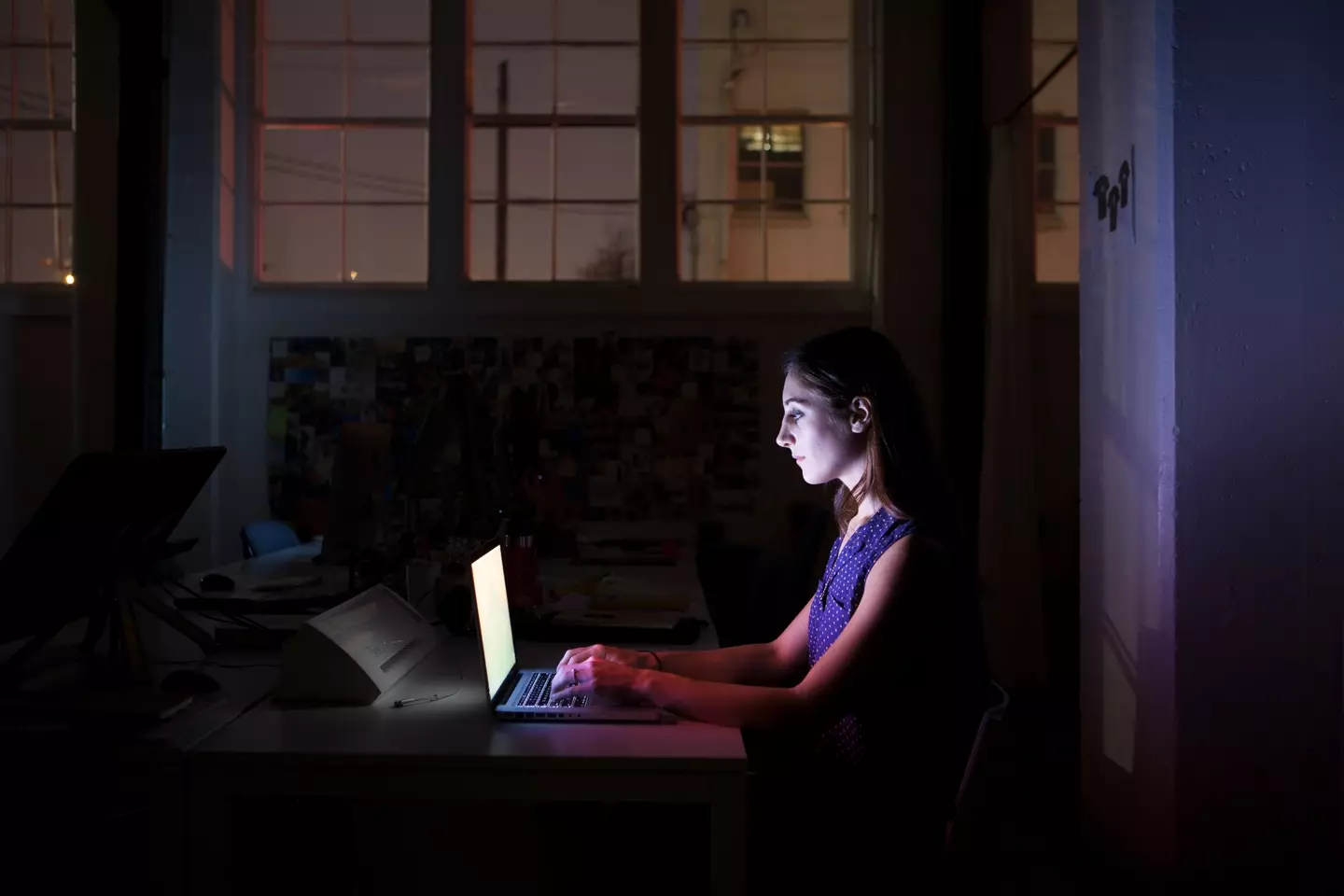
We all have our own unique sleep routines, but some of our habits could actually be harming our quality of sleep.
Experts recommend that we get between seven to nine hours of sleep a night.
This is easier said than done, however.
Advert
Whether it's a stressful and busy job, or a crying baby that's affecting your sleep, I think we can all agree that sometimes, we're not getting as much rest as we should.
And while it's unlikely that you can quit your career, or palm off your child onto someone else, there are other, more simple things you can do in the hours leading up to hitting the sack.
One sleep routine, dubbed the '10-3-2-1-0' method, details what you should and shouldn't be doing ahead of going to sleep to help you properly wind down and get some quality sleep.
10 hours before bed
10 hours before going to sleep, experts say you should stop drinking caffeine.
Advert
While you might notice the effects of caffeine within 15 minutes, it can take as a long as ten hours for it properly leave your system, WebMD explains.
"About six hours after you consume caffeine, half of it is still in your body," it states.
"Caffeine may not completely clear your bloodstream until after 10 hours."
And caffeine isn't just in tea and coffee, it's also in energy drinks and some sodas.
Advert

Three hours before bed
If you're a late-night snacker, this might be a tough one for you, as it's advised that you steer clear of food for three hours before going to bed.
Fried foods, foods with high fat or acid content, and spicy items are things in particular that might disrupt your sleep as a result of the stomach upset, heart burn, and acid reflex they can cause, New York Post reports.
Advert
If you're also prone to a night cap, you might want to switch up your usual glass of Pinot Grigio for a peppermint tea, as experts urge people to not consume alcohol within three hours of hitting the hay, too.
Booze might help people fall asleep, but the Sleep Foundation says that 'it ultimately compromises sleep quality and quantity by causing sleep disruptions later in the night'.
Two hours before bed
In the last couple of hours before going to sleep, you should be winding down from all things work-related. This apparently creates a divide between labor and slumber.
Advert
It's likely your work will involve screen time too, which keeps the brain alert and makes it more difficult to sleep.

If you're really struggling to not work in this timeframe, it's advised you turn to jotting down your ideas in the old-fashioned way (pen and paper) in a bid to minimise screen time.
One hour before bed
Linking back to winding down from work, in the hour before going to sleep, you should steer clear of electronic devices that emit blue light, as it inhibits the body’s production of melatonin - the sleep hormone.
Advert
Research has also found that blue light can disrupt circadian rhythms, leading to sleep delays, so it's a no-go when it comes to getting a good night's rest.
0 hits on the snooze button
While you might feel like you benefit from an extra 10 minutes in bed, hitting the snooze button isn't a good thing in the long run.
A 2022 study found that those who snoozed their alarms slept less and experienced more sleep disturbances.
Advert
It also discovered that snoozers had an elevated resting heart rate and showed lighter sleep before waking.